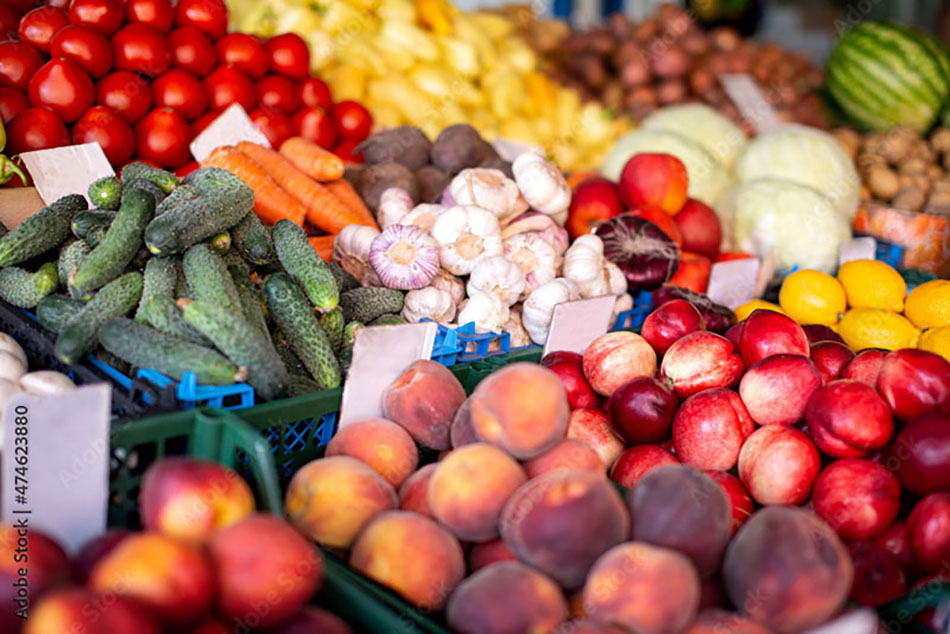Positioning Central Florida’s peak-season produce as a fundamental part of their assortment strategy offers grocers an opportunity to enhance revenue and attract customers seeking locally sourced, high-quality options.

Susie McKinley, director of the division of marketing and development at the Florida Department of Agriculture and Consumer Services, underscored the importance of aligning procurement with periods of maximum supply.
“Spring is the peak harvesting time for many of Central Florida’s fresh fruits and vegetables,” said McKinley, adding that grocers should be focusing on the array of high-quality produce reaching prime availability.
This encompasses high-demand SKUs including bell peppers, blueberries, broccoli, cabbage, cantaloupes, cauliflower, celery, cucumbers, eggplant, leafy greens, peaches, potatoes, radishes, snap beans, squash, strawberries, sweet corn and watermelons.
McKinley highlighted the market advantage of promoting specific commodities at their peak. “Notably, Florida sweet corn is in peak season from March through May. This brings an abundance of that highly anticipated, sweet flavor that consumers eagerly await.”
She also noted the early market entry of another key item. “Florida blueberries are the first in season in the U.S. in late March and are consistently a shopper favorite nationwide.”
McKinley and other experts said that by synchronizing inventory with these peak production windows, retailers can optimize cost of goods sold and offer premium quality at competitive price points, thereby attracting a broader customer base.
“Let’s not forget tomatoes,” said Christina Morton, director of communications at the Florida Fruit and Vegetable Association. “This time of year, tomato season is in full swing in Central Florida.

“In other areas of the state, in addition to blueberries and corn, there are promotable volumes and excellent quality on radishes, potatoes and watermelons in May. Often, Florida is one of just a few domestic suppliers in the marketplace – and sometimes the only domestic supplier – for a variety of crops.”
Leveraging ‘Fresh From Florida’
Beyond sourcing, McKinley highlighted the benefits of the Florida Department of Agriculture and Consumer Services’ “Fresh From Florida” Retail Incentive Program, championed by Commissioner Wilton Simpson.
This initiative, she explained, is structured to create “synergistic” relationships between Florida’s agricultural producers and retail channels, including independent grocers.
“We partner with grocers to feature Florida produce prominently in their weekly circulars and digital advertising, ensuring the recognizable ‘Fresh From Florida’ logo is included to capture consumer attention,” she said.
Among the program’s key value points is providing marketing support to participating retailers.
“To further enhance their displays, retailers can utilize our in-store signage, floor clings and dedicated produce bins, all designed to grab the shopper’s eye and highlight the local origin of the products,” McKinley said.
“By actively promoting Florida produce during its peak season, retailers can significantly increase consumer awareness, drive demand and ultimately boost their sales. This translates to a direct opportunity for enhanced revenue and strengthened customer relationships.”
Pricing predictions
Morton called projections on food prices for the year ahead “telling” and said consumers can ease their concerns when it comes to produce.
“Recent data from the USDA reveals that while prices for all food are predicted to increase 3.2 percent in 2025, prices for fresh fruits are predicted to increase at near-average rates and prices for fresh vegetables to increase by just 0.1 percent,” she said.
“A variety of challenges exist in any given year – from natural disasters to increasing input costs and pressure from unfair imports during our marketing season – but Florida growers are the best in the world at what they do. They are skilled at pivoting and ensuring fresh fruits and vegetables reach retail and foodservice destinations without interruption.”
[RELATED: Celebrate Earth Day With Sustainable Organic Produce]

